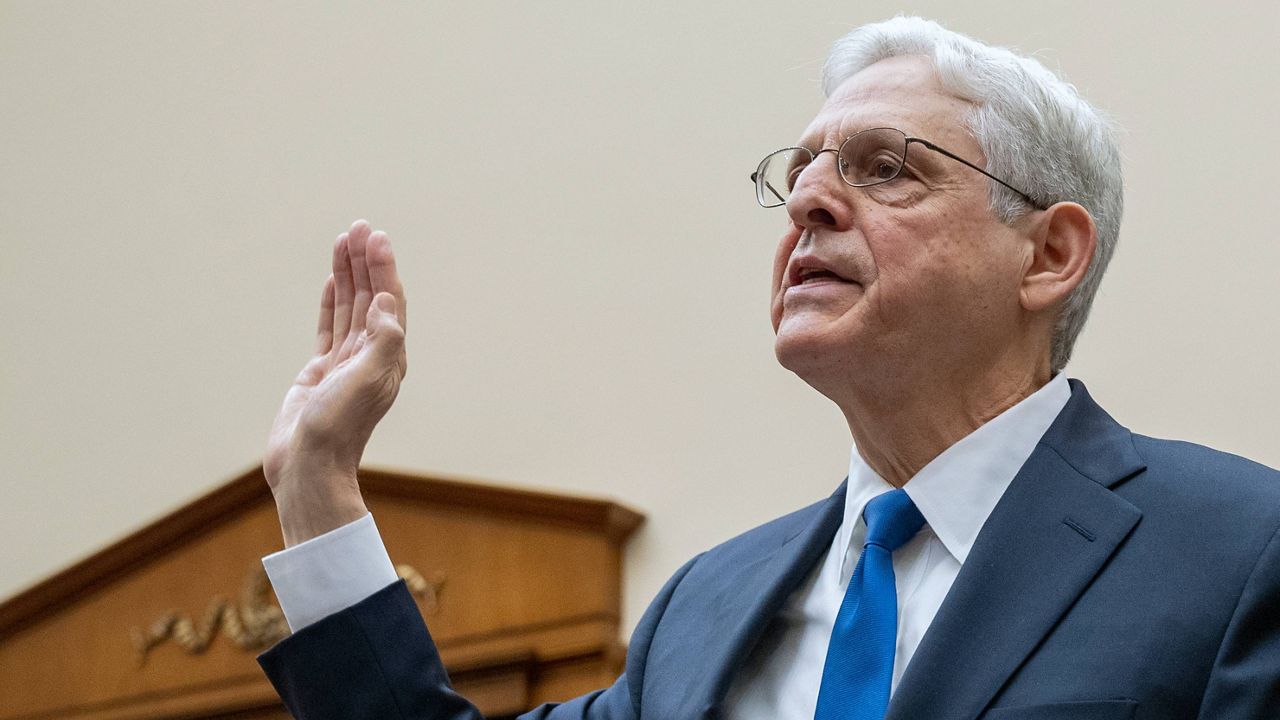The Justice Department says Attorney General Merrick Garland will not be prosecuted for contempt of Congress after refusing to turn over audio of President Joe Biden's interview in his classified documents case because his actions "did not constitute a crime."
What You Need To Know
- The Justice Department says Attorney General Merrick Garland will not be prosecuted for contempt of Congress after refusing to turn over audio of President Joe Biden's interview in his classified documents case because his actions "did not constitute a crime"
- A Justice Department official said that in a letter to Republican House Speaker Mike Johnson on Friday after the House voted to hold Garland in contempt of Congress
- On the last day to comply with the Republicans' subpoena for the audio, the White House blocked the release by invoking executive privilege
- Point 4 goes here
A Justice Department official said that in a letter to Republican House Speaker Mike Johnson on Friday after the House voted to hold Garland in contempt of Congress.
On the last day to comply with the Republicans' subpoena for the audio, the White House blocked the release by invoking executive privilege. It said that Republicans in Congress only wanted the recordings "to chop them up" and use them for political purposes.
Administrations of both major political parties have long held the position that officials who assert a president's claim of executive privilege can't be prosecuted for contempt of Congress, a Justice Department official told Republicans last month.
Garland also argued arguing that lawmakers already have the transcript of the interview and that releasing the audio could hurt future investigations.
“It could influence witnesses' answers if they thought the audio of their law enforcement interviews would be broadcast to Congress and the public,” Garland told the House Judiciary Committee in a hearing last week.
House Republicans say they want to hear the audio to determine if the transcript is accurate.
The 216-207 vote fell along party lines, with Republicans coalescing behind the contempt effort despite reservations among some of the party's more centrist members. Only one Republican, Rep. David Joyce of Ohio, voted against it.
Justice Department policy protects a sitting president from being charged with crimes, but special counsel Robert Hur said, even if he could, he would not recommend prosecuting Biden because the evidence did not prove guilt beyond a reasonable doubt. Hur justified his conclusion by saying Biden cooperated with the investigation, seemed uncertain about whether some information was classified and could credibly claim he believed his notebooks containing classified information were his personal property.
Hur also wrote, “Mr. Biden would likely present himself to a jury, as he did during our interview of him, as a sympathetic, well-meaning, elderly man with a poor memory,” comments Republicans have seized upon.
Garland is the third attorney general to be held in contempt of Congress. But it was expected that the Justice Department,which Garland oversees, would not prosecute him.



